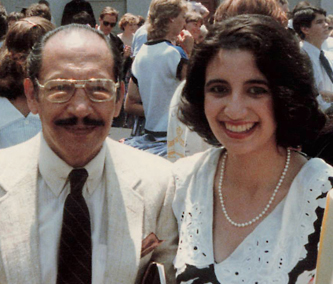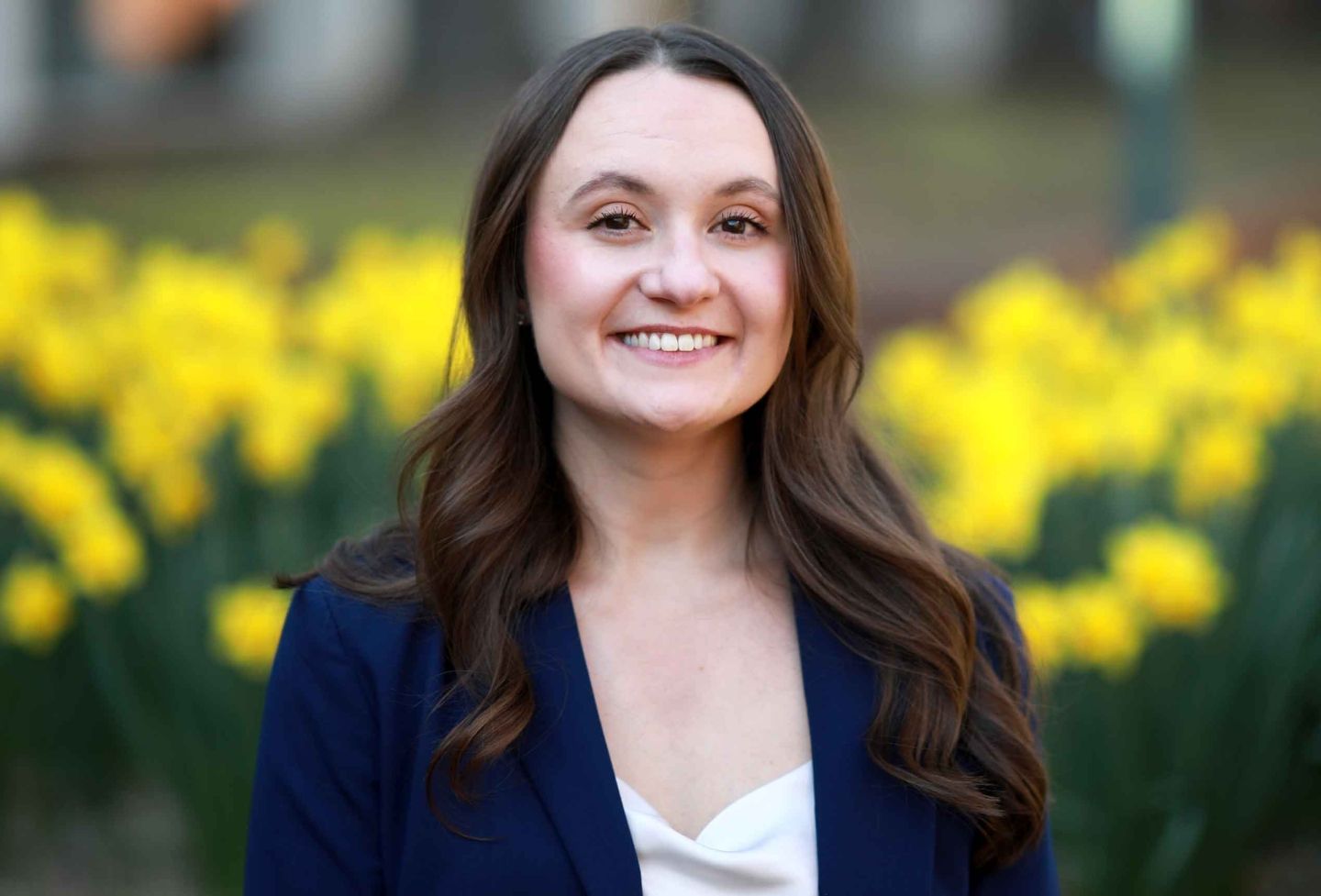Elizabeth Espín Stern ’86 (Col ’83) was in the proverbial right place at the right time to launch a career in immigration law.
Her first job out of the University of Virginia School of Law was as an associate with Shaw Pittman in Washington, D.C. It was the mid-1980s, a time when the tech sector around the nation’s capital was just starting to catch fire, and those fast-growing firms needed talent from abroad.
“Immigration was something I had dabbled in,” said Stern, the daughter of Ecuadorian immigrants and now office managing partner of Mayer Brown in Washington, D.C. “I fell into it because of my international background. I’m not even sure I knew it was an area of practice at the time.”
The 1986 Immigration Reform and Control Act had passed the same year she joined Shaw Pittman. It included amnesty for undocumented individuals based on their tenure in the U.S. and, for the first time, imposed sanctions on employers who hired ineligible workers.
“Immigration was very much in the spotlight, the tech sector was burgeoning in the D.C. area,” Stern said. “The timing led to many more significant opportunities for me. Suddenly, this young associate had to advise all these clients on the new laws.”
She gained exposure to tech CEOs and “innovative tech types” while she was still an associate. It didn’t hurt that many of the entrepreneurs were also young.
It was the start of something big. Stern remained for 19 years at Shaw Pittman, where she started the business immigration practice and launched one of the earliest versions of an online immigration case management and tracking solution for clients.
Hailed as a trailblazer and the recipient of many honors, she is recognized today as one of the foremost authorities in helping multinational companies position their corporate and professional employees where they’re most needed while complying with the immigration regulations of any number of countries.
After Shaw Pittman, she spent nine years at Baker McKenzie, where she helped lead the development of an integrated global mobility and migration service, and joined Mayer Brown in 2014. In addition to leading the firm’s global mobility and immigration group, she was recently named office managing partner in Washington, D.C. — “a whole other full-time job,” as she puts it.
But then, Stern has become adroit at juggling not only jobs, but also cultures and family roles.
Cesar Arturo Espín, Stern’s father, was an Ecuadorian diplomat with the Organization for American States. While home on leave, he married his wife, Cecelia, in Quito and they moved to Chevy Chase, Maryland. Elizabeth, or “Liz,” was the first of three daughters, and the family spent four months a year in Quito until she was 12.
“I was familiar with the concept of immigration because my father brought a lot of family members here and helped friends apply for visas,” she said.

Stern and her father, Ecuadorian diplomat Cesar Arturo Espín, at her May 1986 graduation from the Law School. Courtesy photo
Family comes first for Stern. Her sisters, Ana Cristina and Katerina, live nearby in Northern Virginia. Ana Cristina cares for their mother, who was widowed when Cesar Espín died of natural causes at age 99.
Stern and her husband, Michael Stern, a constitutional lawyer who works on Capitol Hill, have two sons, Alex and David, who both graduated from UVA’s School of Engineering and Applied Science, and also live and work nearby.
The desire to stay close to home — and the fact that she was selected to be an Echols Scholar — led Stern to attend UVA.
“Once I lived in Charlottesville, I loved everything — the mountains, the town, the artsy-ness and, of course, the Grounds. It had a really convivial feel and the education, of course, was fantastic.”
She majored in political science and, already fluent in Spanish, minored in French.
“I had it in my mind that I really wanted to be a journalist,” she said. “I love writing, always have. Being a journalist in D.C., maybe covering international relations or the White House, was my dream.” Of course, she worked for The Cavalier Daily.
Two things during her undergraduate years changed her course of direction: Henry Abraham’s constitutional law class and a congressional internship. “That really made me think it was worth adding law school. I thought, ‘Well, I could go to law school and still be a journalist.’”
Stern ended up “succumbing” to the law, went to work at Shaw Pittman, met her future husband and began juggling her jobs as a mother and a lawyer, with her own mother on hand to help out.
“I was on speed dial for clients and colleagues, but I set limits,” she said.
These days, Stern is juggling the impacts of the pandemic, the divisiveness of American politics and lagging immigration reforms. Companies are facing ever more complex immigration issues — which, she noted, is good for Mayer Brown.
“We have a long pent-up problem that policies aren’t set up to address: refugees from Syria, Afghanistan, Ukraine,” she said. “The regulations haven’t caught up with reality, and there is not a practical reform where, if things weren’t so politically polarized, we could deal with practical solutions.”
In an increasingly borderless world, immigration regulation has become more restrictive, Stern said.
“One of the areas we’re trying to influence is the Dreamers; they’re one small segment of a gigantic global problem.”
The firm has submitted amici briefs in court hearings to support ongoing benefits for Dreamers and has engaged in pro bono work to assist individuals with options in case DACA benefits are curtailed.
“A more proactive immigration reform along the way would have been helpful, but businesses find ways,” she said. “The next big reform might be special provisions for STEM talent because we desperately need STEM. We could move to a point system based on high academic achievement, significant skills like STEM, extraordinary awards.”
With constantly shifting landscapes and new challenges, Stern said she relies on the vulnerability she embraced in the early days of law school, as she and her classmates wondered what constituted a tort or a contract.
“I found out how much I didn’t know, and I was a very educated person — a Phi Beta Kappa for goodness’ sake!” she said. “I was allowed to start from nothing and build up my knowledge. If you look for the right sources and talk to the right people, you can gain knowledge and understanding.”
Editor’s note: This story originally reported the wrong cause of death for Cesar Arturo Espín. He died of natural causes.
Founded in 1819, the University of Virginia School of Law is the second-oldest continuously operating law school in the nation. Consistently ranked among the top law schools, Virginia is a world-renowned training ground for distinguished lawyers and public servants, instilling in them a commitment to leadership, integrity and community service.


